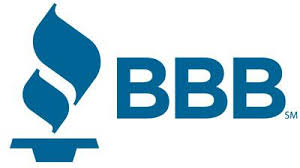 Southfield, MI – November 25, 2019 –Black Friday is the single busiest shopping day of the year. Some retailers even offer “doorbusters” that begin shortly after Thanksgiving dinner. Undeterred by the lines and crowds, millions of consumers get excited to nab unbeatable deals on the hottest new toys and popular electronics.
Southfield, MI – November 25, 2019 –Black Friday is the single busiest shopping day of the year. Some retailers even offer “doorbusters” that begin shortly after Thanksgiving dinner. Undeterred by the lines and crowds, millions of consumers get excited to nab unbeatable deals on the hottest new toys and popular electronics.
According to the National Retail Federation, in 2018 consumers spent an average of $313.29 on gifts and other holiday items over the five-day period between Thanksgiving and Cyber Monday. The most popular items are apparel, toys, books, and video games.
The Monday following Black Friday, known as Cyber Monday, has become one of the top shopping days of the year. In 2018, consumers spent a record-breaking $7.9 billion on online purchases on that day alone.
But online shopping – even on Cyber Monday – has risks. Be wary of misleading advertisements, lookalike websites, and untrustworthy sellers. The following tips will help you shop online this holiday season, so you can achieve maximum savings while keeping your personal information and hard-earned money secure.
Last year, Eastern Michigan consumers reported a total loss of over $33,000 to online shopping scams during the holiday season. Another $25,000 was attempted but luckily, the scammers were unsuccessful.
To keep the holiday season safe and enjoyable, BBB offers the following tips.
Read the fine print. Some retailers may offer an additional percentage off your purchase, but could exclude certain deals or items such as “door busters.” Also, be cautious of companies that boast a high percentage off; the item may be “75% off,” but the original price could be inflated.
Do your research. Read product reviews on extremely discounted items. It could be a cheaper model or brand advertised, and not what you initially think you’re getting. As you are looking through the sales flyers and ads, check BBB.org for Business Profiles of the stores you want to visit, and read what other customers’ have experienced.
Beware of false advertising and phony websites. If a company is selling the hottest item of the year at a price that seems too good to be true, it probably is. Watch out for false advertising and keep a close eye on the web address in your browser. Scammers love to create lookalike websites that, at first glance, appear to belong to a trusted retailer. Make sure websites use the correct spelling of a business name and have legitimate contact information and customer service numbers.
Shop with trustworthy sellers on secure sites only. Be wary of businesses you aren’t familiar with. Check their BBB Business Profile on BBB.org, look at the rating, and read customer reviews. In addition, be sure any web page you purchase from is secure. Secure web addresses begin with HTTPS:// and not just HTTP://. Never put personal or credit card information in forms on non-secure web pages.
Watch out for phishing scams. Busy schedules and increased purchases make it easier to miss – and fall victim to – a phishing scam. Look out for unsolicited emails, texts, calls, or letters. These messages may claim you have a free gift waiting for you or that there is a problem with a delivery – all you need to do is click on a link or give up your personal information. Avoid phishing scams by ignoring suspicious correspondence and calls from unfamiliar phone numbers.
Keep your antivirus software up to date. Make sure you have antivirus software installed on your computer or mobile device, and that it is up to date. This will help you to avoid non-secure websites and pop-up phishing scams and help keep your personal information safe.
Use your credit card. It’s always best to make online purchases with your credit card. If any shady charges turn up later, you will be able to contest them through your credit card company. Debit cards don’t offer this same protection. Never make purchases with online sellers by giving them prepaid debit cards or wiring them money.
Know the return policy and warranty information. Be sure to pass along any information about returns, exchanges, repairs, and warranties to the person who will use the item. Gift receipts are an easy way for recipients to return or exchange a gift if it’s not just right, but make sure the item is able to be returned before purchasing.
For more information about the 12 Scams of Christmas plaquing consumers this holiday season, visit bbb.org.
###
About Better Business Bureau Serving Eastern Michigan and the Upper Peninsula
Better Business Bureau Serving Detroit & Eastern Michigan is a non-profit organization with the purpose of promoting trust in the marketplace by assisting in the protection of consumers and businesses from fraud and unethical business practices. In addition to its recognized dispute resolution services, BBB maintains business reviews on the customer service history of more than 85,000 local businesses and provides consumer education materials on numerous topics. BBB provides its services free to the public and its service territory stretches across Eastern Michigan from Ann Arbor through Metropolitan Detroit, Lansing, Flint, upward to Alpena, and covers the entire Upper Peninsula of the state.












